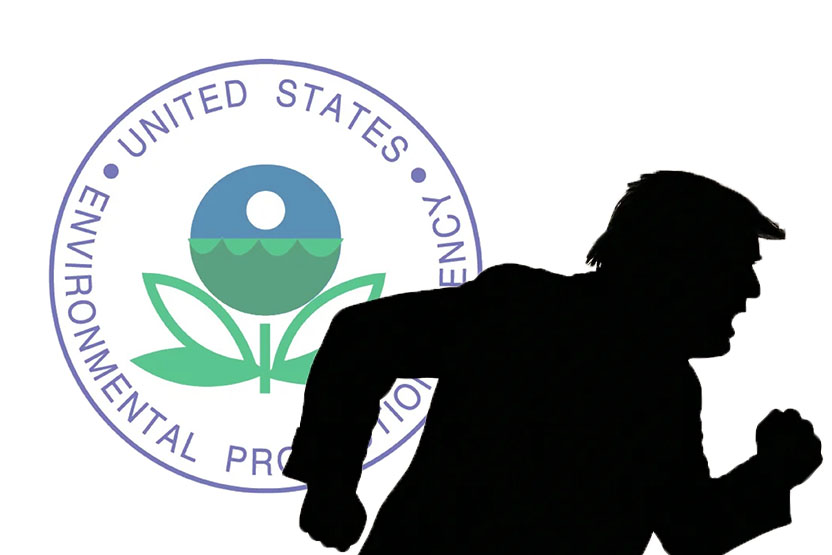
The U.S. Environmental Protection Agency (EPA) has proposed ending a federal program that requires some 8,000 facilities to report their greenhouse gas emissions, marking another major step back from climate and environmental policies under President Donald Trump.
In its proposal, unveiled on Friday, the agency argued that mandatory data collection on emissions is “unnecessary” because it is “not directly tied to potential regulation and does not materially improve human health or the environment.” The EPA characterized the program’s reporting requirements as burdensome.
The move follows a directive signed by Trump on his first day in office, which sought to dismantle regulatory barriers and expand U.S. fossil fuel production. It is the latest in a series of rollbacks that have unraveled years of climate policy, beginning with Trump’s withdrawal from the Paris Agreement on his first day back in the White House.
If finalized, the measure would eliminate reporting obligations for most industrial facilities, along with all fuel and industrial gas suppliers and carbon dioxide injection sites.
EPA Administrator Lee Zeldin defended the proposal, saying the agency was delivering on Trump’s pledge to “unleash America’s energy dominance.” In a statement, he said the reporting program amounted to little more than “bureaucratic red tape,” and claimed its termination could save U.S. companies up to $2.4 billion in compliance costs over the next decade.
The Trump administration has already taken steps in recent months to dismantle core environmental databases maintained by the EPA and other federal agencies, including the National Oceanic and Atmospheric Administration (NOAA). It has also moved to shut down satellite programs operated by NASA that monitor greenhouse gas emissions.
Since its creation in 2010, the EPA’s greenhouse gas reporting program has been one of the country’s most comprehensive tools for tracking emissions. Covering 47 source categories across 8,000 facilities and suppliers, the program requires power plants, oil refineries, chemical manufacturers, and fossil fuel suppliers to calculate and submit annual emissions data. It also includes carbon dioxide injection sites.
The proposed rollback, however, would not entirely eliminate reporting obligations. Methane emissions from certain oil and gas operations, including natural gas pipelines, would remain subject to disclosure under the Inflation Reduction Act of 2022, which mandates such reports by law. The EPA is instead proposing to allow those facilities to delay their reporting deadlines.
For critics, the plan represents a severe blow to federal climate policy. Environmental experts argue that without reliable data, the government cannot design or enforce meaningful strategies to curb emissions.
“By taking this step, they are stripping the federal government of its practical and material ability to perform the basic functions of climate policymaking,” said Joseph Goffman, who led the EPA’s Office of Air and Radiation during the Biden administration.
Under the 2015 Paris Climate Agreement, the United Nations requires all developed countries to submit annual emissions inventories. The United States missed the April deadline for its latest report, underscoring concerns that the country’s climate commitments are faltering amid continued regulatory rollbacks.


Comment